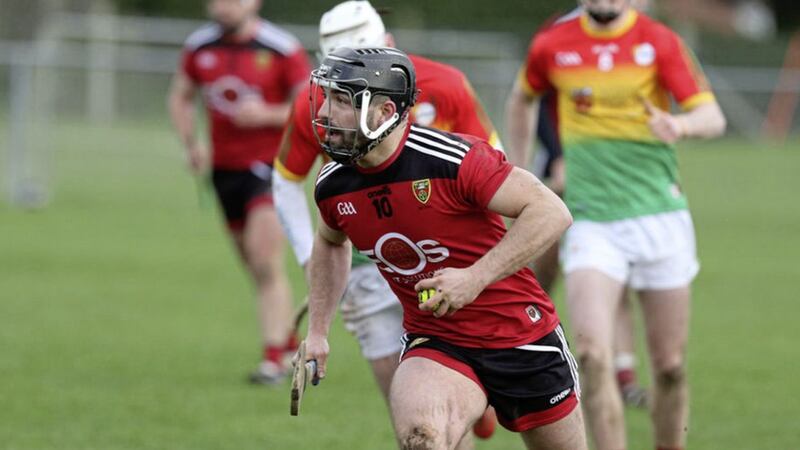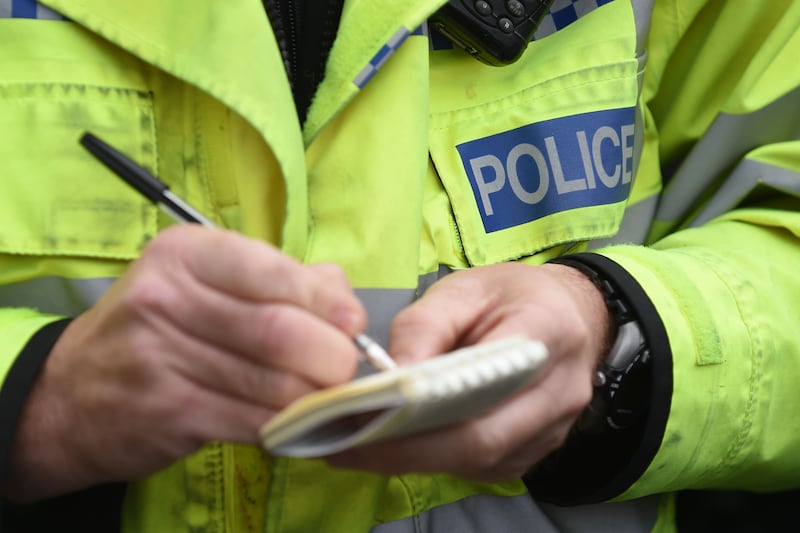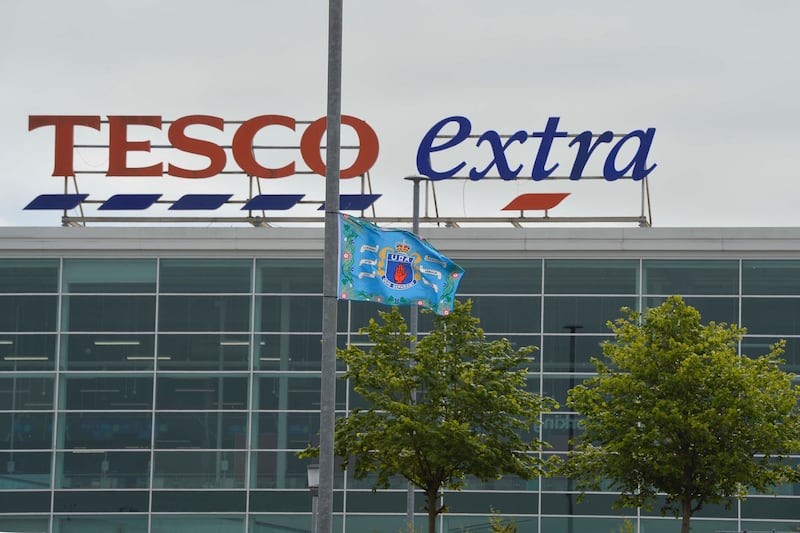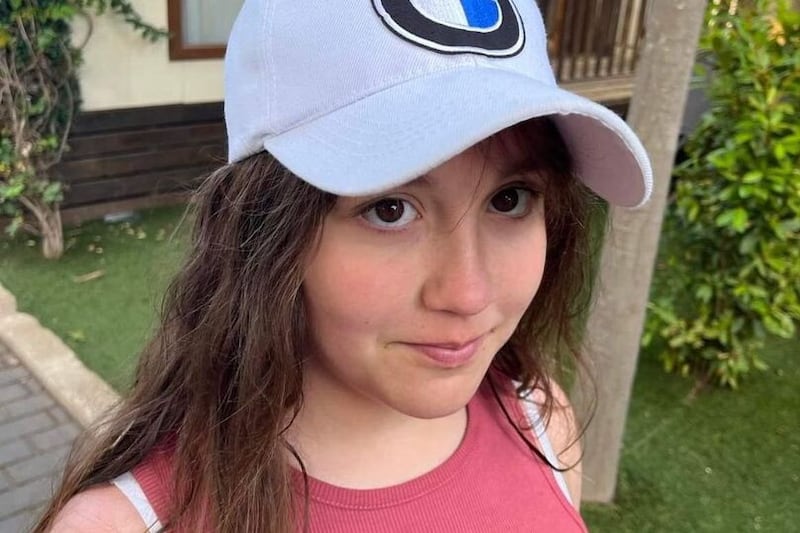EMPTY vessels make most noise - but we still shouldn't ignore their empty-headed mouthing, or simply let the echoes drift away.
Down senior hurling manager Ronan Sheehan quite rightly called out the sectarian comment allegedly made to his players by their Carlow opponents in Ballycran earlier this month.
It's difficult to prove such charges. I was at that match, close enough to the sideline to worry about a stray sliotar flying into my face during several scuffles for possession, but I didn't hear the reported remarks.
That's not to doubt for a second that they occurred.
We, or at least the players on the pitches, have heard it all before, such as when they were directed at a player from the republican heartland of south Armagh, as just one of the many occasions on which this has occurred.
It would be laughable if it weren't so serious.
The best reaction, of course, to such stupid comments is to laugh them off, given that they are clearly being made to provoke an angry reaction.
The recipient should merely smile, knowing that they're untrue, knowing that the idiot uttering them is a complete clampit.
The Down hurlers know they're not 'Brits', or 'Prods', or 'black bastards'.
Yet even if they were - so what?!
After all, the first President of Ireland, the founder of Conradh na Gaeilge (the Gaelic League), Douglas Hyde, was a 'Prod' - and also a patron of the GAA from 1902, before being stripped of that honour in 1938 for attending a soccer international.
It's not actually offensive to be called a 'Brit' (albeit acknowledging the ongoing history of these islands), or to be labelled a 'Prod', or a 'black bastard'. I once lost my temper at being called the last word, because I deemed it offensive to my parents, but now even that wouldn't be bothersome - so what if your parents weren't married when you were born, or never married?
Back to the sectarian stuff, and the Carlow hurlers slobbering such stupidity were presumably unaware of the publication less than two years ago of what their local newspaper - 'The Nationalist' - called 'a compelling collection of essays detailing the role of Protestants in Ireland.'
'Protestant and Irish: the minority's search for place in independent Ireland', published by Cork University Press, consists of 17 essays on various ways Protestants sought to find roles in post-1922 Ireland.
The Nationalist reported: 'Co-editor of the book and Carlow College lecturer Dr Ida Milne remarked on the high level of integration of Protestants in the southeast, even at the venue of the launch, a former Catholic seminary. Co-editor Ian d'Alton said that a vision for the book was to show that Protestants had tried in earnest to be part of Irish society.
'Dr Milne's own essay examines how Protestants engaged with the GAA, whether through actively playing, supporting or working within the organisation, like former president Jack Boothman, who served between 1994 and '97.
'She found that Protestants would take part with their local GAA clubs to meet people in the community, but they did not want the attention that came with playing for a county team.'
The Down hurlers draw attention to themselves, living on the Ards peninsula which is overwhelmingly Protestant and unionist.
The Down hurlers also embody the ethos of the GAA: 'The Association has as its basic aim the strengthening of the National Identity in a 32-County Ireland through the preservation and promotion of Gaelic Games and pastimes.'
There was no outraged denial of sectarian abuse from Carlow, although their chairman Jim Bolger did issue this statement: "Carlow GAA are committed to upholding the principles of Anti-Sectarianism and Anti-Racism. All related reports/allegations are investigated and action taken as appropriate."
Down hurling boss Sheehan, a proud and outspoken republican of Cork heritage, admitted that he probably would have said nothing if his side had lost the tight tussle, for fear of being accused of 'sour grapes'.
Thankfully he did tell RTE, explaining: "It may only be loose words for the person saying them but it does impact on players given who they are and what some of their families endured to play our national games."
I was on the Ards a few days before that match to interview legendary former Down hurler Hugh Dorrian. He spoke of generally good relations on the peninsula, despite the nationalist community being heavily outnumbered - but his club Ballygalget's clubhouse was still burnt down by loyalist hoodlums in 1991.
It's easy to be a Carlow county hurler.
It's disgusting that anyone from the south comes out with such comments.
They are ignorant in both uses of the word, both unknowledgeable and rude
There's a wider issue to consider too.
Anti-Protestant sectarianism and anti-British bigotry are simply accepted by far too many in the Association. Even now, in 2022, not 1922.
Those who rush to cite the examples of Jack Boothman, the former GAA President, or a few Protestant players at club level, don't seem to realise that they are clutching at straws.
There may be plenty of Protestants playing GAA south of the border, but there aren't many up here.
That is far from being all the GAA's 'fault', of course.
To an extent, it is what it is.
Many Ulster/ Northern Irish Protestants simply don't want to be involved in the GAA, for various reasons, although many do have a quiet interest and also wish their neighbours well in their sporting endeavours, often expressing such support in public.
The GAA was not widely invited into southern 'rugby schools', nor state schools in NI, after the removal of The Ban on its members playing foreign sports - although there may be some sporadic examples. It's been more than half a century now…
Yet bigotry and sectarianism travel in both directions, even if they do come more from one side than the other.
One prominent Protestant player from Ulster has suffered sectarian abuse, which led to the GAA admirably beefing up its punishment for such incidents.
The GAA declares: 'The Association is Anti-Sectarian, Anti-Racist and committed to the principles of inclusion and diversity at all levels.
'Any conduct by deed, word, or gesture of sectarian or racist nature or which is contrary to the principles of inclusion and diversity against a player, official, spectator or anyone else, in the course of activities organised by the Association, shall be deemed to have discredited the Association.'
The current minimum suspension is eight weeks, while debarment and expulsion from the Association may also be considered. For a team, disqualification, a fine, and deduction of points in League competitions (not Championship) may also be considered.
Britain GAA has put forward a motion to Annual Congress for that minimum suspension to be extended to 48 weeks.
How can they attract locals if they're likely to be abused as 'Brits'?
Here, the problem is that for all the talk and actual, laudable evidence of inclusion of immigrants, the elephant in the room, or, to be accurate, barely in the room, is the limited involvement of Protestants.
There is a battle for the hearts and minds - and bodies - of young people, the GAA trying to hold onto teenagers who are more attracted by soccer, rugby, hockey, or other sports.
There may never be many Ulster Protestants in the GAA - but they certainly won't be attracted to those who use 'Prod' and 'Brit' as terms of abuse.







